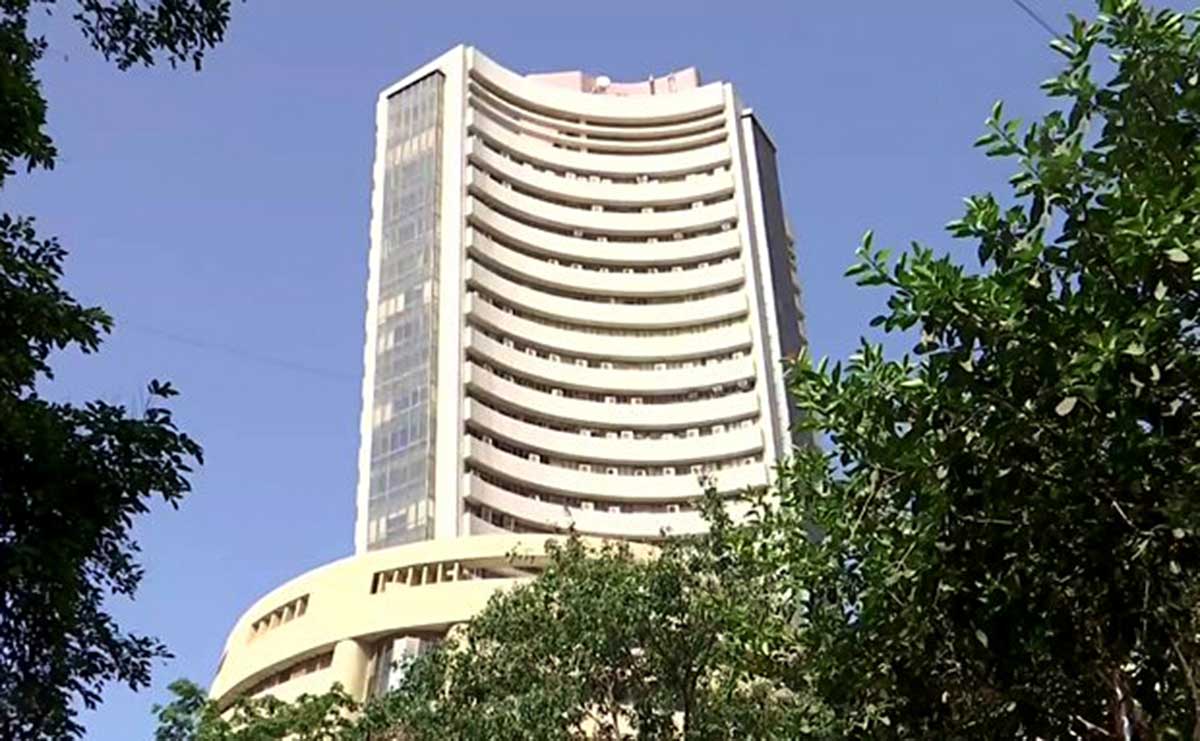Will Sensex Hit 100,000 Mark?
‘Like all long-term bull markets, the Indian stock market will continue to climb the proverbial wall of worry.’
IMAGE: The Bombay Stock Exchange. Photograph: ANI Photo
The S&P BSE Sensex can climb the ‘wall of worry’ and hit the 100,000 mark soon, believes Christopher Wood, global head of equity strategy at Jefferies.
This implies an upside of nearly 62 per cent from the current levels.
Wood believes that India remains the best structural story across world markets.
‘With the structural story still intact, GREED & fear continues to take the view that it will only be a matter of time before the Sensex reaches the 100,000 level, a target of fascination to India’s delightfully noisy financial media,’ Wood writes in his weekly note to investors, GREED & fear.
‘This target, on a five-year view, now assumes trend 15 per cent earnings per share (EPS) growth and that a five-year average one-year forward price-earnings (PE) multiple of 19.8x is maintained,’ GREED & fear adds.
Among stocks, Wood has added Zomato to his India long-only portfolio with a 4 per cent weighting, while the investment in HDFC Life Insurance has been removed.
The investment in REC Limited has been increased by two percentage points by shaving the investment in Oil & Natural Gas Corporation.
‘An investment in Zomato will also be added to the global long-only equity portfolio. This will be paid for by shaving the investments in JD.com and Alibaba by two percentage points each,’ GREED & fear states.
IMAGE: Passersby look at a screen displaying the Sensex on the facade of the Bombay Stock Exchange building. Photograph: Niharika Kulkarni/Reuters
Meanwhile, some other market experts, too, remain bullish on the Indian growth story and see the S&P BSE Sensex hitting stratospheric levels going ahead.
In a May 27, 2021 note, Raamdeo Agrawal, chairman & co-founder of Motilal Oswal Financial Services suggested that the S&P BSE Sensex could hit the 200,000 mark in the next 10 years — up nearly 224 per cent from the current level of around 61,800, and advised investors not to bet against India.
The index was trading at around 51,500 levels when Agrawal penned his note.
For the S&P BSE Sensex to achieve this monumental feat, Agrawal, like Wood, expects corporate profits to grow at 15 per cent on compounded annualised basis (CAGR) for the next 10 years — a tad higher than the country’s GDP, which he had pegged at 12-13 per cent (nominal GDP) during this bull phase.
Market returns going ahead, he had said then, would be in line with growth in corporate profits.
Meanwhile, the markets have been range-bound in the last 20 months with the S&P BSE Sensex hovering in a tight 5,000-point range. This, Wood believes, has allowed earnings growth to catch up with valuations.
In this sense, India, he said, is not as expensive as it was both in absolute terms and relative to the region.
‘Indeed, the one-year forward PE at 18x is only slightly above the 10-year average of 17.4x, while the Nifty PE premium to Asia ex-Japan at 42 per cent is also near the 10-year average of 38 per cent, explains GREED & fear.
‘Still like all long-term bull markets, the Indian stock market will continue to climb the proverbial wall of worry.
‘One obvious worry over the next 12 months will be the inevitable questioning of the current consensus, namely that Modi will be re-elected,’ Wood writes.
Another potential risk to the markets, according to him, is a further reduction in retail investor activity following a period when the stock market has traded in a tight range.
Active brokerage/demat accounts have declined from a peak of 38 million in June 2022 to 31 million in April 2023, data shows.
Feature Presentation: Ashish Narsale/Rediff.com
For all the latest business News Click Here

